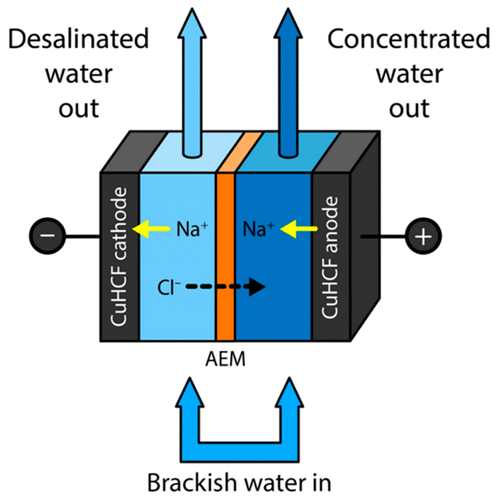An economical method of water desalination is proposed
Researchers from the University of Pennsylvania have developed a new method of desalination, which does not require high energy costs and is potentially capable of solving the problem of lack of drinking water in the arid regions of the planet.

The technique is based on the known technology of capacitive deionization. In it water is desalted, electrochemically separating ions of salts; to the two sides of the element with a flowing electrolyte (salt solution to be cleaned), electrodes are used that collect ions from the salt solution, when the circuit is closed and an electric current arises in it. Periodically changing the direction of the current in the chain, you can gradually get rid of most of the salts in the solution and make the water suitable for drinking.

Capacitive deionization does not require expensive osmotic membranes, and the amount of electricity consumed for desalination is relatively small, so this method is gradually becoming more popular than other methods of desalination. The drawbacks of this method include the slow removal of salt from the solution at the recommended voltage. The increase in voltage accelerates the adsorption of salts, but at the same time leads to undesirable reactions in the solution and irreversible corrosion of the electrode.